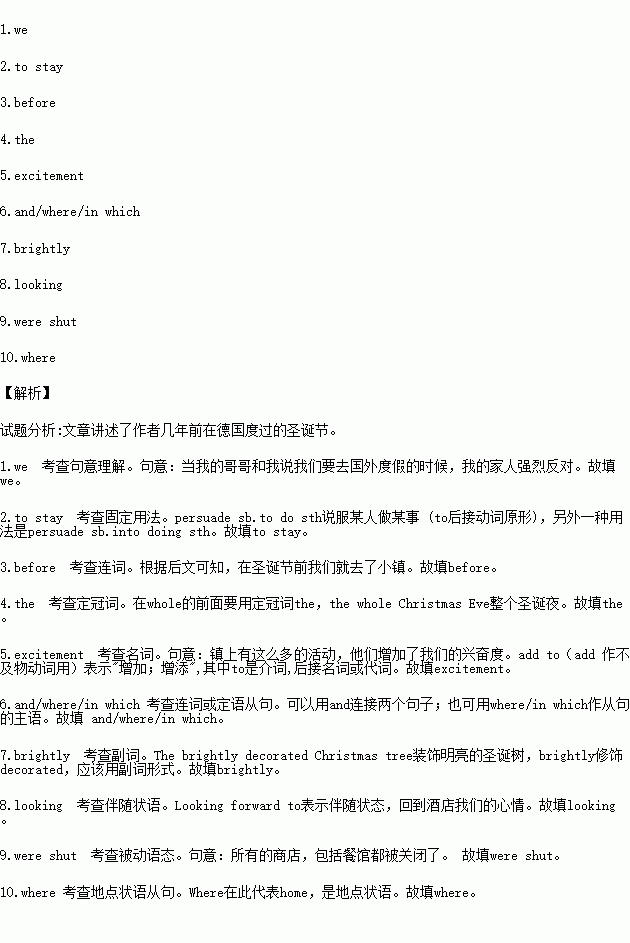题目内容
语法填空
I will never forget the Christmas I spent in Germany a few years ago.
My family bitterly opposed us when my brother and I said 1. were going to spend the Christmas holidays abroad. But nothing could persuade us 2. (stay). Two days 3. Christmas, we went to a small town in Southern Germany. We spent 4. whole Christmas Eve sightseeing.
There were so many activities in the town that they added to our 5. (excite). The streets were crowded with people, 6. the shops were full of wonderful things. In the evening, we went to listen to Christmas songs sung by children around the 7. (bright) decorated Christmas tree in the main street. We returned to our hotel late that night, greatly 8. (look) forward to the next day when we planned to have a meal at the best restaurant in town. But in the morning the streets were empty. To make matters worse, all the shops including the restaurants 9. (shut). At last we had to return to our hotel, feeling very miserable(心情糟糕的). Our Christmas “feast” was a bag of fruits, which my brother had happened to buy the day before. Our thoughts sadly turned to home, 10. the entire family must have been wishing us a “Merry Christmas” at that moment.

